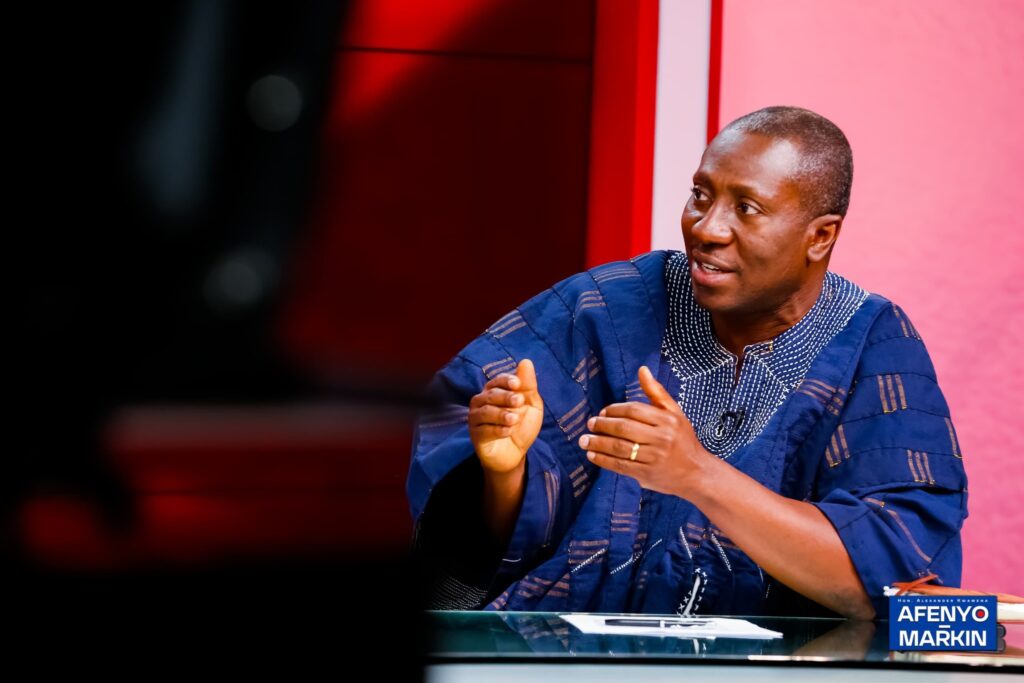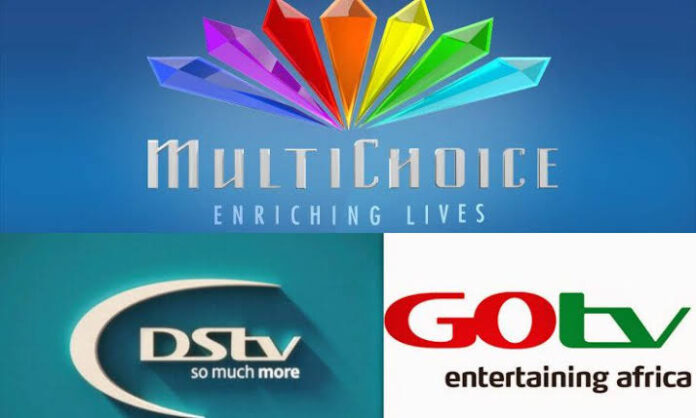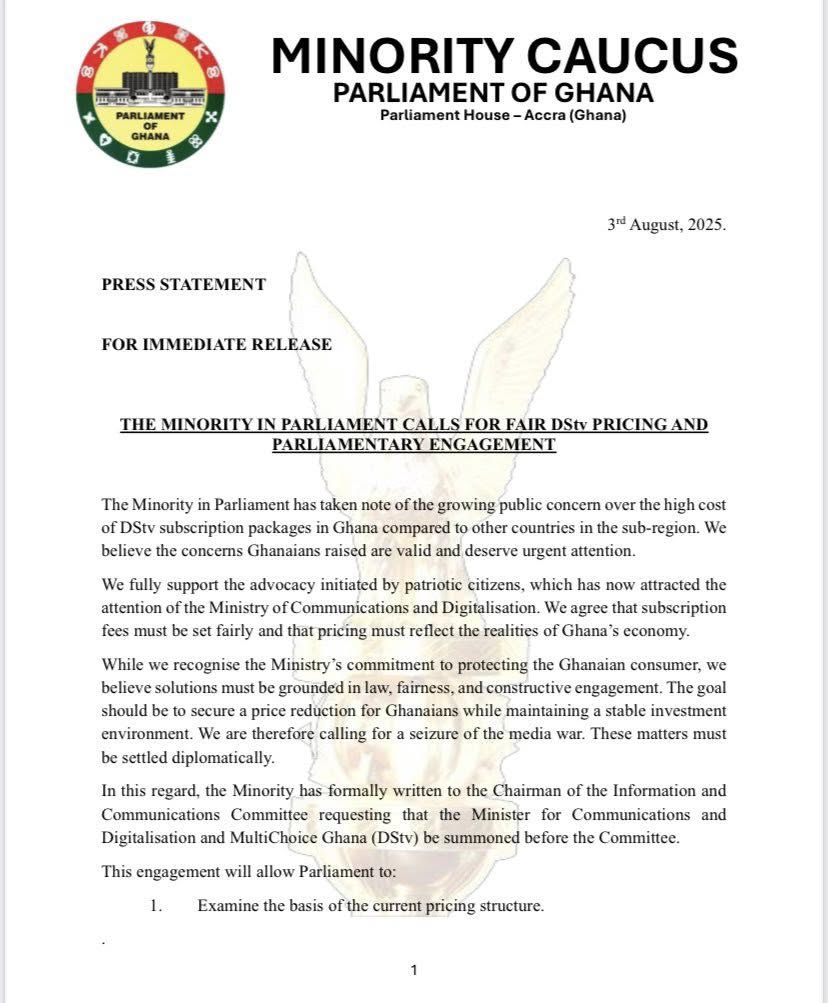The Minority Caucus in Ghana’s Parliament has formally petitioned the Chairman of the Information and Communications Committee to summon the Minister for Communications and Digitalisation, Sam Nartey George, along with MultiChoice Ghana (DStv), over escalating concerns regarding the high cost of television subscription services.
The call for parliamentary scrutiny follows growing public agitation over DStv subscription prices, which many critics say do not reflect Ghana’s current economic realities, especially when compared to similar markets in the sub-region like Nigeria.

In a statement dated 3 August 2025 and signed by Matthew Nyindam, Ranking Member on the Parliamentary Committee, the Minority Caucus backed citizen-led advocacy and emphasized the urgent need for fair pricing and transparency.
“We fully support the advocacy initiated by patriotic citizens, which has now attracted the attention of the Ministry of Communications and Digitalisation. We agree that subscription fees must be set fairly and that pricing must reflect the realities of Ghana’s economy,” the statement read.
The Minority is pushing for a constructive and legal approach, calling for a diplomatic end to the current media standoff between the Minister and MultiChoice Ghana.
“While we recognise the Ministry’s commitment to protecting the Ghanaian consumer, we believe solutions must be grounded in law, fairness, and constructive engagement. The goal should be to secure a price reduction for Ghanaians while maintaining a stable investment environment,” the statement continued.

The move comes in the wake of a strong ultimatum issued by Minister Sam George on 1 August, during the Government Accountability Series. He demanded that MultiChoice Ghana implement a 30% reduction in DStv subscription fees by 7 August, warning that failure to comply could lead to the revocation of the company’s broadcasting licence.
The Minister argued that Ghanaians were being unfairly charged, citing a glaring pricing gap: Ghanaian customers reportedly pay the equivalent of $83 USD for the DStv premium package, compared to $29 USD in Nigeria for the same service.
In a swift response dated 3 August, Managing Director of MultiChoice Ghana, Alex Okyere, rejected the price-cut demand, calling it “unrealistic.” The company did acknowledge the recent appreciation of the Ghanaian cedi but maintained that subscription prices are influenced by multiple factors including content costs, satellite transmission, operational expenses, and customer service delivery.
Despite the pushback, the Minister has stood his ground, reiterating that sanctions would be enforced if the pricing directive is not honoured by the set deadline.

The Minority is now asking the Parliamentary Committee to summon both the Minister and MultiChoice representatives to allow for a public hearing and transparent review of pricing mechanisms and consumer protection standards.
They also emphasized the role of the National Communications Authority (NCA), urging the regulatory body to uphold its responsibility to ensure fairness and protect Ghanaian consumers from potential exploitation.
With the deadline looming, Ghanaians are closely watching to see whether DStv will adjust its pricing model or face regulatory penalties. For many subscribers, the issue goes beyond affordability—it’s about equity, transparency, and fairness in how multinational service providers treat Ghanaian consumers compared to others across Africa.
As Parliament prepares to intervene, the spotlight remains firmly on both the Ministry and MultiChoice Ghana, with the hope that dialogue and legal scrutiny will lead to a resolution that benefits the average Ghanaian household.




